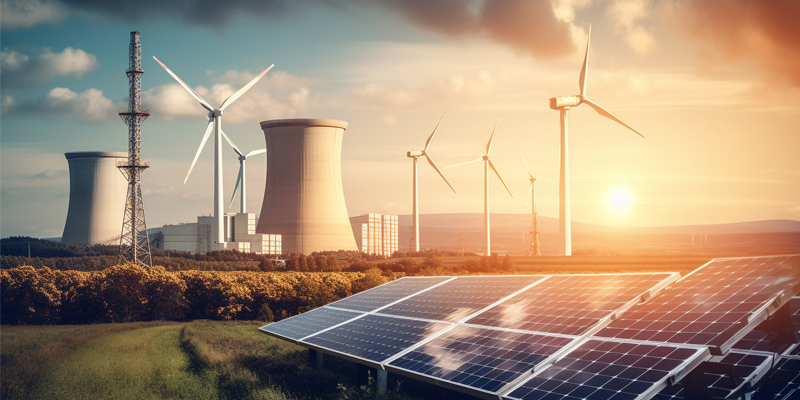Schedule a Call Back
“HVAC systems are essential in making manufacturing facilities run efficiently.”
 Interviews
Interviews- Aug 27,24

HVAC systems often requires a
significant initial investment, but the long-term energy savings can make it a
smart decision. There are several strategies that can help balance upfront costs
with these future benefits, says Kishor
Patil, HVAC & Transport, India & SAARC Country Leader, Trane
Technologies.
Brief us on products and solutions
offered by your company in HVAC space
Trane is a leading provider
of HVAC solutions for industrial applications. We offer a comprehensive range
of products and services designed to meet the specific needs of industrial
facilities, focusing on comfort, efficiency, and sustainability.
Key products and solutions for
industrial applications:
- Chillers: Trane offers various chiller types, including
centrifugal, screw, and absorption chillers, to accommodate different
cooling capacities. These chillers are designed for reliability, energy
efficiency, and low noise levels.
- Rooftop units: Ideal for industrial buildings with limited
space, Trane's rooftop units come in various capacities and configurations
to meet specific requirements.
- Air handling units: These units deliver air
distribution and filtration for industrial environments. Trane provides a
wide range of air handling units with diverse features and capabilities.
- Building automation systems: Trane's Building Automation Systems
(BAS) help optimise energy efficiency, improve indoor air quality, and
enhance overall building performance.
- Energy management solutions: Trane offers energy management
systems to help industrial facilities reduce energy consumption and lower
operational costs.
- Ductless systems: VRF (Variable Refrigerant Flow)
systems for zoned heating and cooling, which are highly flexible and
efficient for varying industrial space requirements.
- Condensing units: Reliable solutions for
refrigeration and cooling applications in industrial environments, known
for their durability and performance.
Trane is committed to providing
innovative and sustainable HVAC solutions for industrial applications. Our products and services are designed to
improve efficiency, reduce energy consumption, and enhance overall building
performance.
Why are HVAC systems important for improving efficiency and productivity in
manufacturing facilities?
HVAC systems are essential in making
manufacturing facilities run more efficiently and productively for several key
reasons. They help maintain a stable environment by controlling temperature,
humidity, and air quality, ensuring that machinery and equipment operate
smoothly, which reduces downtime and maintenance costs.
These systems also play a big role in
keeping employees comfortable, leading to better morale, lower absenteeism, and
higher productivity. By providing a consistent and pleasant work environment,
HVAC systems make it easier for employees to stay focused and engaged. Stable
conditions are also vital for protecting product quality, as temperature and
humidity fluctuations can cause issues during production.
Modern HVAC systems are designed to be
energy-efficient, which not only lowers operating costs but also reduces the
facility’s environmental footprint. Additionally, by filtering out contaminants
and managing humidity levels, these systems contribute to a safer and healthier
workplace, helping to prevent health problems and support overall well-being.
Overall, HVAC systems are crucial for
keeping a manufacturing facility running smoothly, ensuring a comfortable and
healthy environment for employees, protecting product quality, improving energy efficiency, and promoting reliability.
What is the market size and scope for industrial applications of HVAC in India?
What are the key factors driving this market?
The Indian HVAC market
for industrial applications is growing rapidly, driven by industrialisation,
urbanisation, and an increasing focus on energy efficiency. While exact figures
for the industrial sector are hard to pin down, it is considered a significant
part of the overall HVAC market in India.
Here are several key factors are fueling this
growth:
- Industrialisation: As manufacturing continues to expand across
India, more factories and plants require HVAC systems to keep operations
running smoothly.
- Urbanisation: The fast-paced development of cities is
creating a demand for modern infrastructure, including HVAC systems for
commercial buildings, shopping malls, and other urban spaces.
- Rising energy costs: With energy prices on the rise,
businesses are seeking energy-efficient HVAC solutions to help lower their
operational costs.
- Government support: Government initiatives aimed at promoting
energy efficiency and sustainable development are encouraging companies to
adopt more advanced HVAC technologies.
- Increased awareness of indoor air quality: As concerns about indoor air
quality grow, more businesses are looking for HVAC systems that offer
better filtration and ventilation features.
How do regulatory standards and incentives influence the selection of HVAC
systems in industries?
Regulatory standards
and incentives play a crucial role in shaping the choice of HVAC systems in
industries. Governments set energy efficiency standards to encourage the use of
equipment that conserves less energy and reduces greenhouse gas emissions,
motivating industries to opt for more efficient systems.
Regulations on indoor air quality also
influence decisions, pushing for HVAC systems that include advanced filtration
and ventilation to ensure a healthy work environment. Additionally, meeting
safety standards is essential, as HVAC systems need to adhere to specific
safety requirements to protect employees and prevent accidents.
Companies own environmental policies in
line with global sustainability goals are also attractive businesses to opt for
more sustainable solutions. Industries can also earn carbon credits by
upgrading to energy-efficient systems, which can be traded or used to offset
emissions.
Overall, regulatory standards help
create an environment that encourages industries to choose HVAC systems that
are not only efficient and reliable but also aligned with environmental regulations. These factors are
key in guiding industries toward selecting the best HVAC solutions for their
needs.
How can industries balance upfront costs with long-term energy savings when
upgrading to eco-friendly HVAC systems?
Upgrading to eco-friendly HVAC systems
often requires a significant initial investment, but the long-term energy
savings can make it a smart decision. There are several strategies that can
help balance upfront costs with these future benefits. For instance, opting for
HVAC systems with high energy efficiency ratings. Additionally, financing
options like leasing or loans can help spread out the costs, making them more
manageable. Conducting a life cycle cost analysis is also crucial to compare
the total cost of ownership across different systems, taking into account
factors like energy consumption, maintenance, and repairs.
Investing in energy management systems
can further enhance efficiency by optimising performance and pinpointing areas
where energy savings can be achieved. Regular maintenance is key to extending
the lifespan of HVAC systems and ensuring they run efficiently. Industries
should also research available rebates from utility companies or government
agencies that can help reduce the initial investment. By considering these
strategies, industries can make informed decisions that balance upfront costs
with long-term energy savings and environmental benefits.
What are the emerging trends in HVAC technologies?
The HVAC industry is evolving rapidly,
with exciting new technologies and innovations making systems more efficient,
sustainable, and high-performing. Here are some of the key trends that are
shaping the future of industrial HVAC:
- IoT integration: More HVAC systems are being connected to the
Internet of Things (IoT), allowing for remote monitoring, control, and
optimisation. This helps with predictive maintenance and energy
management, ultimately improving efficiency.
- AI and machine learning: Artificial intelligence and
machine learning are being used to analyse data from HVAC systems, optimising
performance and predicting when maintenance is needed. This can lead to
cost savings and more reliable systems.
- Building Automation Systems (BAS): These advanced systems link HVAC
with other building components, like lighting and security, to improve
overall energy efficiency and building performance.
- Renewable energy integration: HVAC systems are increasingly
being paired with renewable energy sources such as solar and geothermal,
helping reduce dependence on traditional energy and cutting operational
costs.
- Natural refrigerants: There’s a growing trend toward
using natural refrigerants or synthetic refrigerants like Hydrofluoroolefins (HFO)
with low GWP, which are
more environmentally friendly than traditional options.
- Modular design: Modular HVAC systems are becoming popular
because they offer flexibility—these systems can be easily scaled up or
down to fit changing industrial needs.
- Advanced filtration systems: New filtration technologies are
improving indoor air quality by removing more contaminants from the air,
reducing health risks for those inside.
These trends are driving big changes in
industrial HVAC, making systems more adaptable, efficient, and sustainable to
meet the demands of modern industrial settings.
How is the HVAC market expected to evolve in the next five years?
The HVAC market is set to grow steadily
over the next five years, driven by several important factors. As cities expand
rapidly, especially in developing countries, there will be an increasing demand
for HVAC systems in both homes and businesses. With energy costs on the rise,
more people are looking for energy-efficient systems to help cut down on
expenses. Additionally, as awareness of indoor air quality grows, there's a
higher demand for HVAC systems that offer better filtration and ventilation to
improve health and comfort. Technological advancements, like IoT integration,
AI, and the use of eco-friendly refrigerants, are opening up new possibilities
for innovation in the industry. Government policies that support energy
efficiency and sustainability are also helping to boost the market. However,
the industry isn't without challenges—economic ups and downs, supply chain
issues, and strong competition could pose hurdles. Despite these challenges, the
overall HVAC market in India is poised for robust growth, supported by economic
development, technological advancements, and a growing emphasis on energy
efficiency and sustainability. The HVAC market is expected to continue growing
steadily in the years to come, thanks to these various drivers.
What are your plans to further tap the HVAC market? (in terms of developing new
technologies, expanding production capacity, tapping new end-user industries,
exports, etc)
We are committed to introducing new innovations across HVAC&R that tie-in well
with India’s sustainability and growth mission. Our product innovations during
the COVID-19 phase are the testimony of
how we take people’s health, customer efficiency and energy efficiency
seriously. We will continue to tread this path.
Related Stories

India is now positioned as a leading player in forging: Yash Munot
In this interview with Rakesh Rao, Yash Munot, President, Association of Indian Forging Industry (AIFI), highlights India’s readiness to strengthen its global position in forging, and importance o..
Read more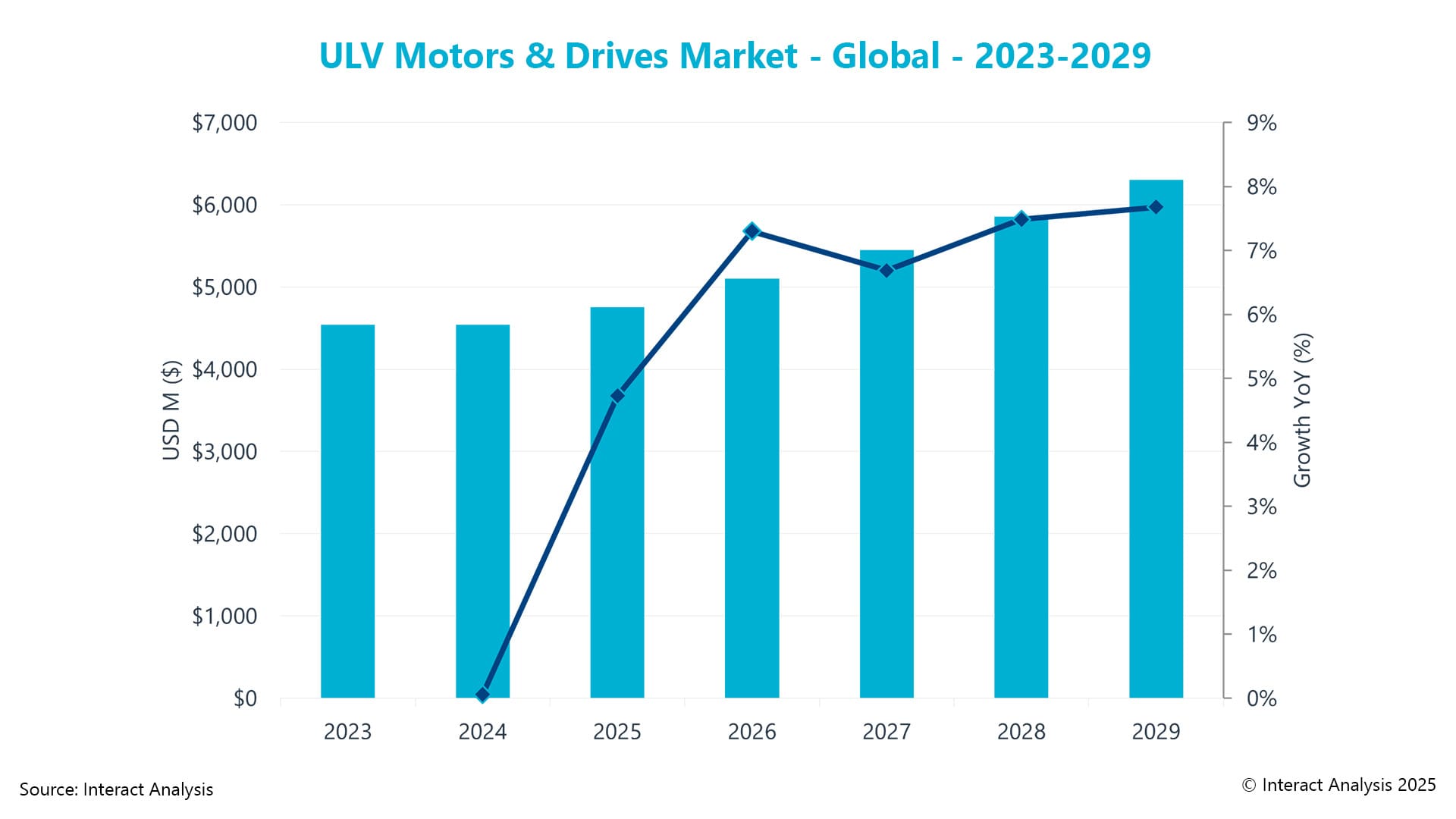
Ultra-low voltage motors and drives sector rebound in 2025: Interact Analysis
After growing at 0.1 per cent in 2024, the ultra-low voltage (ULV) motors and drives market is set for recovery in 2025, driven by mobile robotics and renewed industrial automation demand.
Read more
Igus Debuts World’s First ESD-certified Dress Pack
Complete triflex ESD system from igus protects electronic components from electrostatic discharge - customers have been using basic systems successfully for over 15
Read moreRelated Products
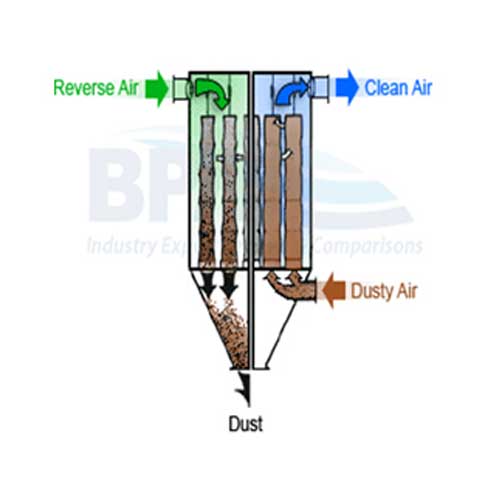
Reverse Air Bag House
ABR Enviro Systems offers a wide range of reverse air bag house.
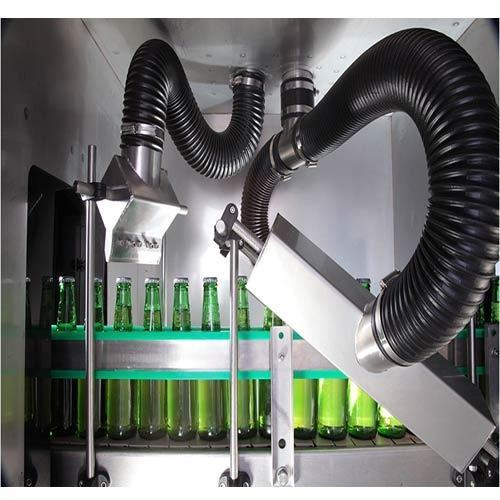
High Quality Air Knife System
Superchillers offers high quality air knife system. Read more
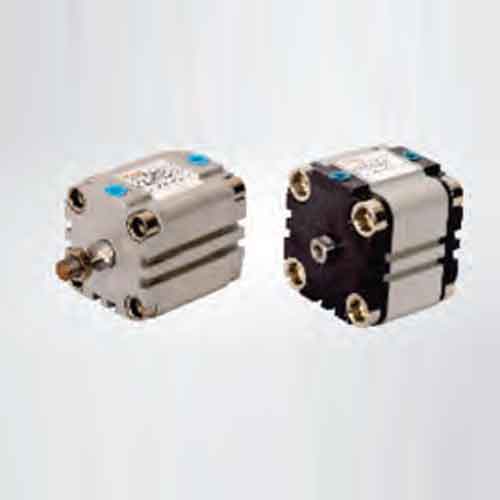
Compact Cylinders -Vadvu Series
Vijay Air Control offers a wide range of compact cylinders -Vadvu Series









